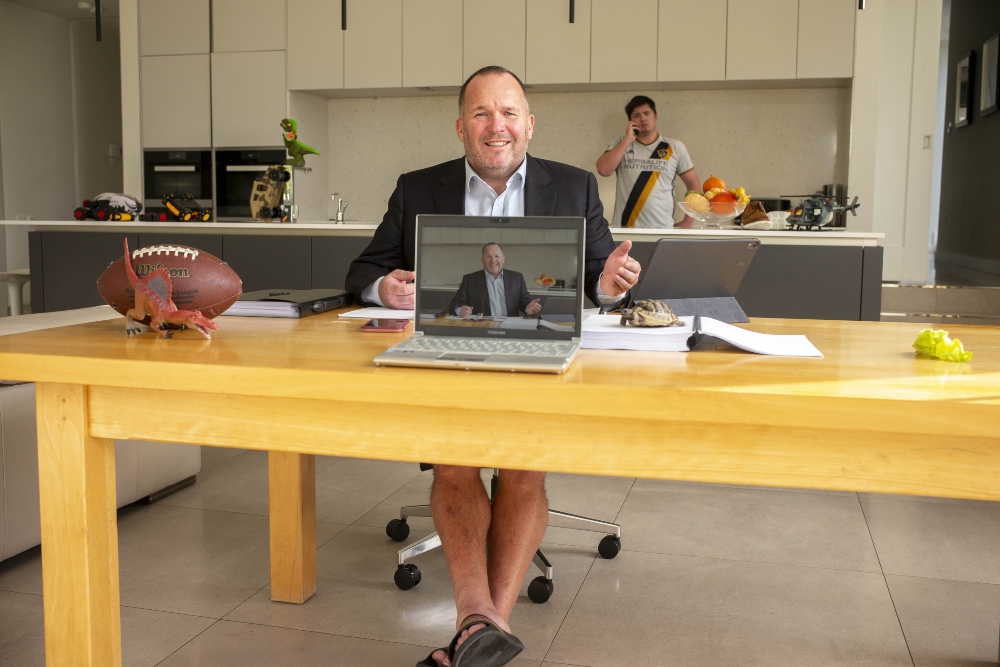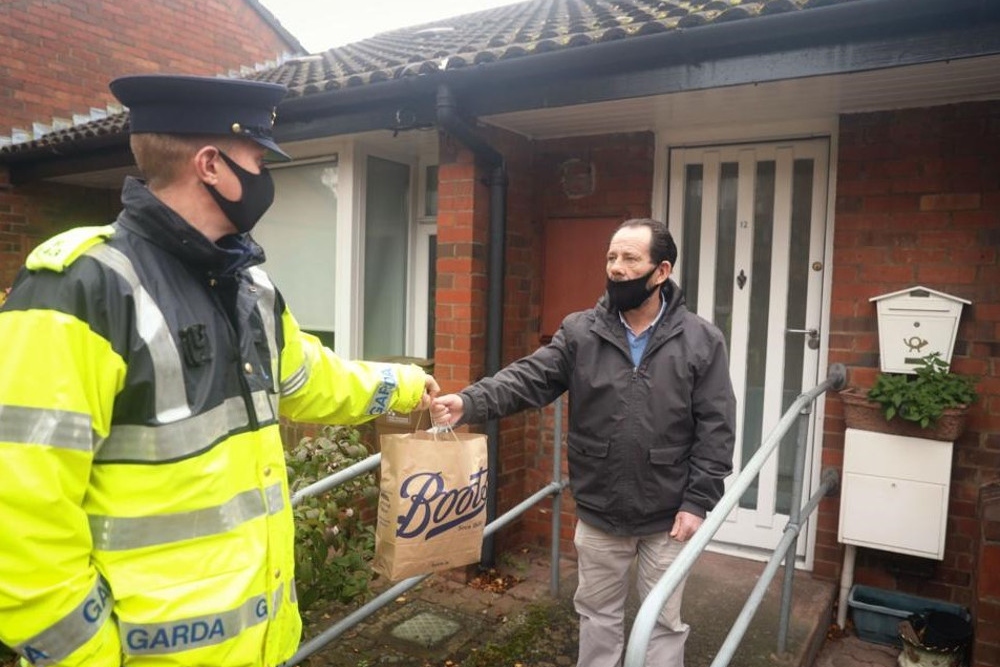Podcast Ep 43: Ireland’s telecoms industry is complex at the best of times, but somehow Pure Telecoms’ Paul Connell has navigated the choppy waters brilliantly.
Paul Connell chuckles at my recollection of a telecoms industry conference around 2005 where an executive, frustrated by lack of progress and competition at the time, told the room that if Irish broadband was a horse it would be taken out and shot. The observation was met with stunned silence. But everyone silently agreed.
Zoom forward to late 2020 and you wonder how much has really changed. Yes speeds are faster in a lot of places, but there are a lot of other people in lots of other places with poor connectivity or no broadband at all. The National Broadband Plan (NBP) to join up the parts of Ireland still without broadband has yet to unfurl its fibre in a meaningful way, and there’s talk of a second NBP to reach even harder to connect areas.
“When I look at the demands of our customers and what they want, the key demand is broadband, solid broadband”
Competition-wise the Irish telecoms market is still pretty much a bunfight between established players with overseas parents companies and an incumbent that is also owned by overseas parents.
Despite this, where people can get broadband, the quality and speeds have been increasing steadily and without this infrastructure it would be debatable if the Irish economy’s white-collar workforce would have been able to continue working throughout lockdown. Simply put, technology and telecoms saved Ireland’s bacon in the pandemic.
Into the middle of all of this is a homegrown Irish company called Pure Telecom led by Connell that was founded in 2002 and has grown to become a €20m a year business.
Pure Telecom has experienced 30pc increase in demand for broadband services since Covid-19 outbreak, and in recent months signed a deal with BT Ireland worth up to €10m. The deal grants Pure Telecom access to SIRO’s nationwide high-speed fibre broadband network.
Playing to win
In a way, Pure Telecom owes its success to dealing with most of the established players in the market, utilising their network assets, rather than going head-to-head in an infrastructure battle.
“When we started our original plan was to build a network and we had finance in place to start building a network. I’m an accountant by trade and when I started looking at the numbers I thought to myself, this is going to be like setting up a Spar shop to compete with all the Tescos. At that time only 8pc of the infrastructure that existed in Ireland was being utilised. We said ‘right, let’s not build a network, instead let’s sit on top of other people’s networks – in the same way that Ryanair doesn’t own Dublin Airport or any other network they fly into. Let’s instead concentrate on buying the capacity and packaging it up and providing it to our customers.”
The strategy has worked and Pure has been able to grow steadily, compete efficiently and yet work with and compete against the various industry giants. In some ways Pure is like the Switzerland of Irish telecoms.
That said, Connell is under no illusions about the state of broadband in Ireland. On the one hand you have operators talking about gigabit speeds and 5G in cities and built-up urban areas while in neighbouring districts the quality is poor, or non-existent in rural areas. Don’t let the eye-watering speeds and boasts fool you, the state of connectivity and fibre coverage in Ireland has more in common with a block of Swiss cheese.
“I have pals who live in parts of Dublin and they can’t get a decent service, the infrastructure in their area is crap and they ask me is there anything I can do.”
Like everyone else, Connell is hoping the National Broadband Plan will deliver and like every operator, he intends to make good use of it once built.
Doing the hard yards

CEO of Pure Telecom Paul Connell adapting to remote working. Pure’s survey highlighted that 31% of Irish remote workers routinely wearing pyjamas on the job.
“While I am a risk taker, I like to go to bed every night knowing I am going to make money”
Connell first worked in telecoms in the late 1990s with European operator GTS and he was involved in building Three’s first 3G networks in Europe in the early 2000s while working at Hutchison Whampoa.
He describes building Pure Telecom from inception in 2002 to its present €20m-plus revenue a year and around 100,000 customers’ scale as “doing the hard yards” with his business partner Alan McGonnell.
In the early years Connell and McGonnell did all of the sales work but by the end of year one were convinced they were onto something.
Looking back on the past year Connell says he has nothing but sympathy for the plight of businesses that have been impacted by Covid-19. “The best of businesses have collapsed or are under pressure. And it has nothing to do with how well they are run. Hospitality, the airlines, it’s just crap. I say to my business partner we should get down on bended knee and give thanks that we are supplying an essential service.
“Being a small and medium-sized business gives us the ability to dive and turn. If a customer asks us for bandwidth with strawberries on top, we will find a way to give them bandwidth with strawberries on top whereas a larger competitor will take longer. Our agility is our advantage … although that’s the first time anyone’s used ‘agility’ with Paul Connell in the same sentence! But we are quick to change in the market.
“We are very conscious of looking at what our customer base wants and responding to those customers.
“Often our customers just want to talk to a human being and get a resolution to their problem. I don’t have a network. I don’t have massive assets. What I have is my customers and they are my asset. So I can’t afford to lose them. For my business customers, I need to wrap them in cotton wool and put them somewhere warm. So they grow with me. And it’s the same with our residential customers.”
Part of Pure’s success is down to disciplined, precise and forensic analysis of key performance indicators (KPIs). “We look at our KPIs every day. How many customers did we win? Where did those customers come from? Who sold us those customers? Did we have any churn? How many did we lose? Where did they go? And if I keep the balance, I need to ensure that my growth is substantially higher than churn so that churn can’t easily overtake growth.
“While I am a risk taker, I like to go to bed every night knowing I am going to make money.”
Asked if he sees Pure Telecom playing in the mobile space as 5G comes to market, Connell says he’ll never say never but that right now that’s not his focus.
“When I look at the demands of our customers and what they want, the key demand is broadband, solid broadband.”
In conclusion, he sees businesses and residential customers demanding higher if not more reliable speeds and a willingness to live in more regional locations.
“Covid-19 has fast-tracked that and it has reset life. It has reset how we look at telecoms and how we look at broadband. Even if we look at the property market and the peripheral towns, people are looking to live and work somewhere that’s nicer than the city centre.
“So, if this Covid-19 thing has any kind of positive it is that it has allowed us to change pace.”
Main image: Paul Connell, CEO Pure Telecom
By John Kennedy (john.kennedy3@boi.com)
Published: 22 December 2020






